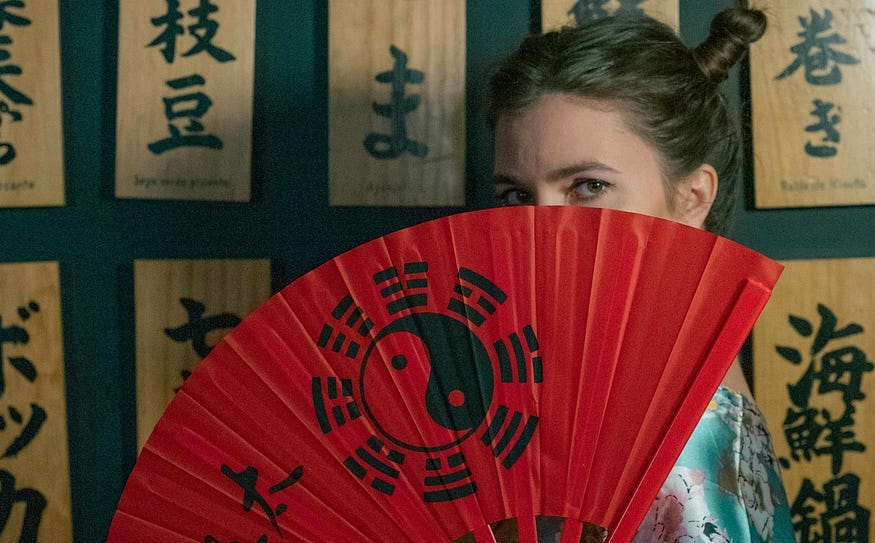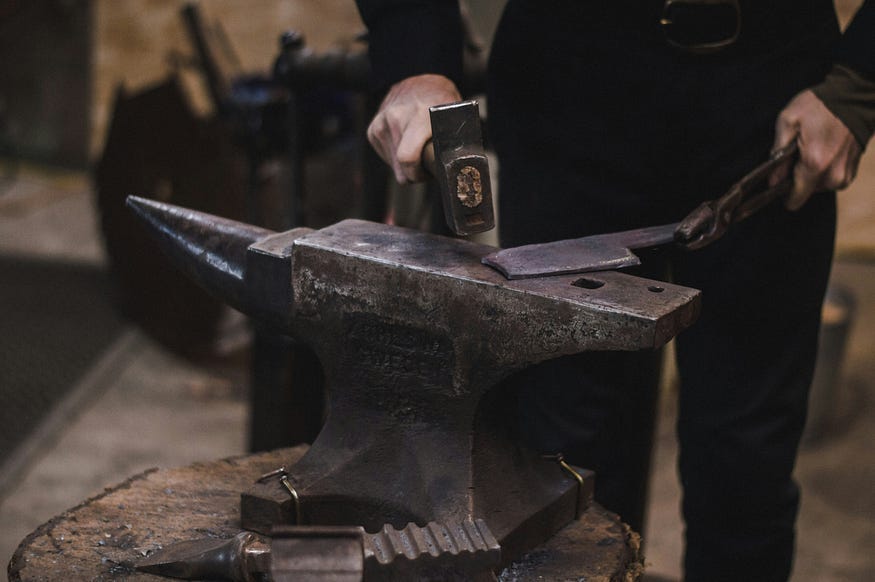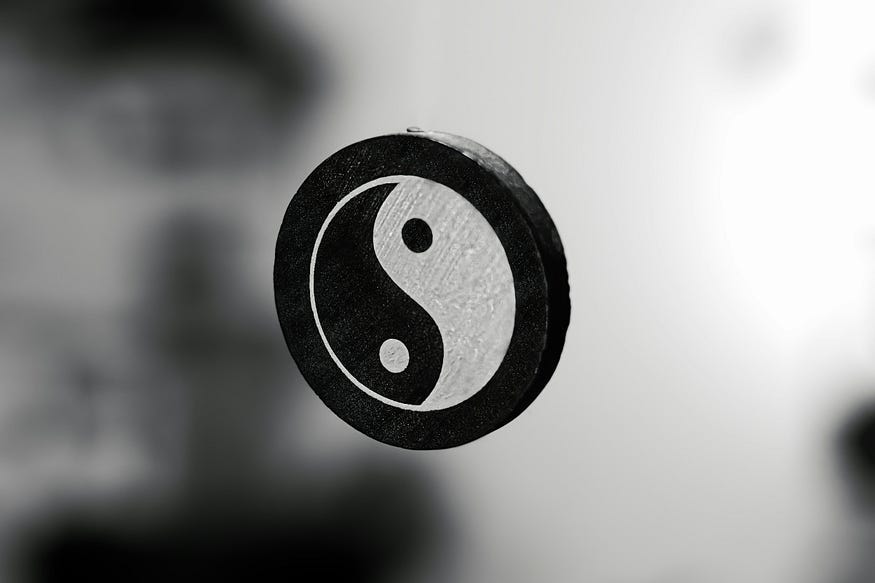Wu Wei: The Art of Doing Without Striving
How to achieve more by surrendering to the current of things
Right, Monday, let’s have it.
I used to love those wee Garfield cartoons in the back of the Irish Daily Star; you’d always find a discarded one in any of the pubs I used to be a barman. I’d pick it up when the boss wasn’t looking and go straight to the comics panels.
Lord knows there’s very little else worth reading in a tabloid other than the cartoons and the sports.
Anyway, Garfield had a thing for Mondays, Monday the 13th being the most feared day of the year when anything that could go wrong most certainly would for the wee feline. Murphy’s Law. But most Mondays were bad for wee Garfield.
He was a pretty chill cat overall, going with the flow, not really trying, just living life as it happened. Other than lasagne, he didn’t really have any goals to grind or strife towards. And he usually wasn’t annoyed unless Odie was involved, of course, but he still begrudgingly loved that pup. Nermal too, but Nermal was annoying, on purpose.
In the way that The Big Lebowski’s The Dude is seen as a modern embodiment of Wu-Wei (going with the flow of life), you could argue Garfield fits that, too.
Albeit, they both ‘fall out’ of Wu Wei when they get angry. As Walter said to the Dude in one scene, “That’s very un-dude, Dude."
Last week, on the other website, I was lucky enough again to receive another Boosted article, it’s all about Wu Wei and how to live with the flow of life rather than trying to grind things out.
I hope you enjoy it.
Mind yourselves!

The burden of toil and the lie of effort
To me, it seems like there’s a soft heresy whispered beneath the hum of modernity, a notion so antithetical to the grindset gospel that even to entertain it is to risk the sneering contempt of the sleep-deprived strivers: what if effort is the problem?
You’ve heard the commandments of the productivity faith: arise at dawn, seize the day, and wring from each hour the last drop of value.
You have been sold the lie of effort, as though the world were an anvil and you its smith, hammering upon the thing until it yields to your will.
And yet, what is it that the anvil feels? What is it that remains when the hammer has shattered, when the hand that wielded it has withered?
Wu Wei, the old ones called it. Not idleness, not passivity, but action so harmonized with the nature of things that it ceases to be a struggle.
The bird does not plan its flight; the river does not strategize its descent to the sea. And yet, they arrive.
What if all your striving was not only unnecessary but the very thing impeding the motion of your life? What if the hands that clutch the tightest are the least capable of holding?

The stream and the stone
Wu Wei comes to us from the Taoists, the ragged mystics of the old Chinese hills, who spoke in riddles and laughed at those who sought certainty.
It is the way of the water, yielding yet unstoppable.
A man may rage against the current, may strike at it with his fists, but he tires long before the water does.
This is not the doctrine of the slothful, nor is it the mystic’s excuse to abdicate responsibility. It is mastery in its highest form.
The warrior who parries before the strike is fully formed. The poet who catches the phrase before it is lost to the river of thought. The musician whose fingers move unbidden, guided not by effort but by attunement to some unseen melody.
The West has its own fumbling attempts to describe this phenomenon: the psychologist’s flow state, the philosopher’s negative capability, the athlete’s “being in the zone.”
But these are shadows on Plato’s cave wall, useful, certainly, but inadequate. W
u Wei is not merely peak performance but something deeper, more unsettling to the modern mind; it is the end of the need to strive altogether.
To move with the grain of things rather than against it.
To relinquish the illusion of control and find, in its absence, true power.
The mind unshackled: Wu Wei in modern life
The world, as it stands, is a shrine to effort.
It glorifies toil, fetishizes exhaustion, baptizes the sleepless in the fires of meritocracy. But for all its sacrificial offerings upon the altar of ambition, it yields nothing but ruin.
The old Taoists were they to rise from their quiet graves, would give a good, old belly laugh.
They would find you in your cubicles, your open-plan prisons, your self-imposed time loops of obligation, and they would shake their heads. They would say that you are clenching too hard.
What, then, does Wu Wei look like now, in the age of ceaseless motion?
In work — It is doing the thing that is natural to you, in the way it is natural to do it. It is the sculptor allowing the stone to guide the chisel rather than imposing his will upon it. The best decisions arise not from over-analysis but from the ease of recognition: this is right; this is not.
In thought — It is releasing the need for certainty, embracing ambiguity like an old friend. The poet John Keats called it negative capability, the ability to rest in uncertainty without grasping for conclusions. A man possessed by the need for answers cannot think.
In love — It is not chasing, not clinging, not contorting oneself into shapes unfit for the soul. It is the river and the sea meeting, neither resisting the other, neither diminishing.
In action — It is knowing when to move and when to be still. The samurai does not swing his sword at every moment; he waits, poised, and when the time comes, he acts without hesitation, without doubt.
To live in Wu Wei is not to surrender one’s will but to let it dissolve into something greater.
It is to become the thing moving rather than the thing struggling to move.
The myths of striving and the nature of power
I reckon it’s frightful for the modern mind to conceive of power without force.
The myths of striving are well-rooted in our culture, and they persist like garden weeds:
Myth vs. Reality
Wu Wei is laziness. No. It is action refined to its most potent form.
If I stop trying, I’ll fail. Effort is not what brings success; alignment is.
I must control my outcomes. The tightest grip ensures the thing slips through your fingers.
It is not that the fisherman does nothing; it is that he knows when to cast his line. It is not that the writer does not write; it is that he does not force what has not yet formed.
You are not called to stillness in the sense of stagnation but in the sense of recognition.
The moment to move, the moment to act, it presents itself. The trick is to be unburdened enough to see it.

The way forward: a challenge
The last refuge of the skeptical mind is the demand for proof, so here is your task:
For one day, relinquish the burden of force.
Stop trying to make things happen.
Stop forcing conversations, outcomes, decisions.
Move as the moment presents itself, when the moment presents itself.
Then watch. See if the day does not take on a peculiar rhythm, a natural unfolding. See if, in your relinquishing, you do not become more, rather than less, effective.
If it does not work, return to the grind, to the clenching of the fists, to the overburdened mind.
But if it does? Then you will know.
And knowing, as the old Taoists knew, is enough.
Who am I? Hi! I’m Paddy Murphy.
Thanks for reading my article about Wu Wei. I’m actually a counselor, teacher, and professional writer with 20+ years of experience.
If you’re ready to deepen your practice or work through challenges, let’s talk. Book a free 30-minute discovery call here.
My different social media channels are here. You can make a donation here via Paypal.

